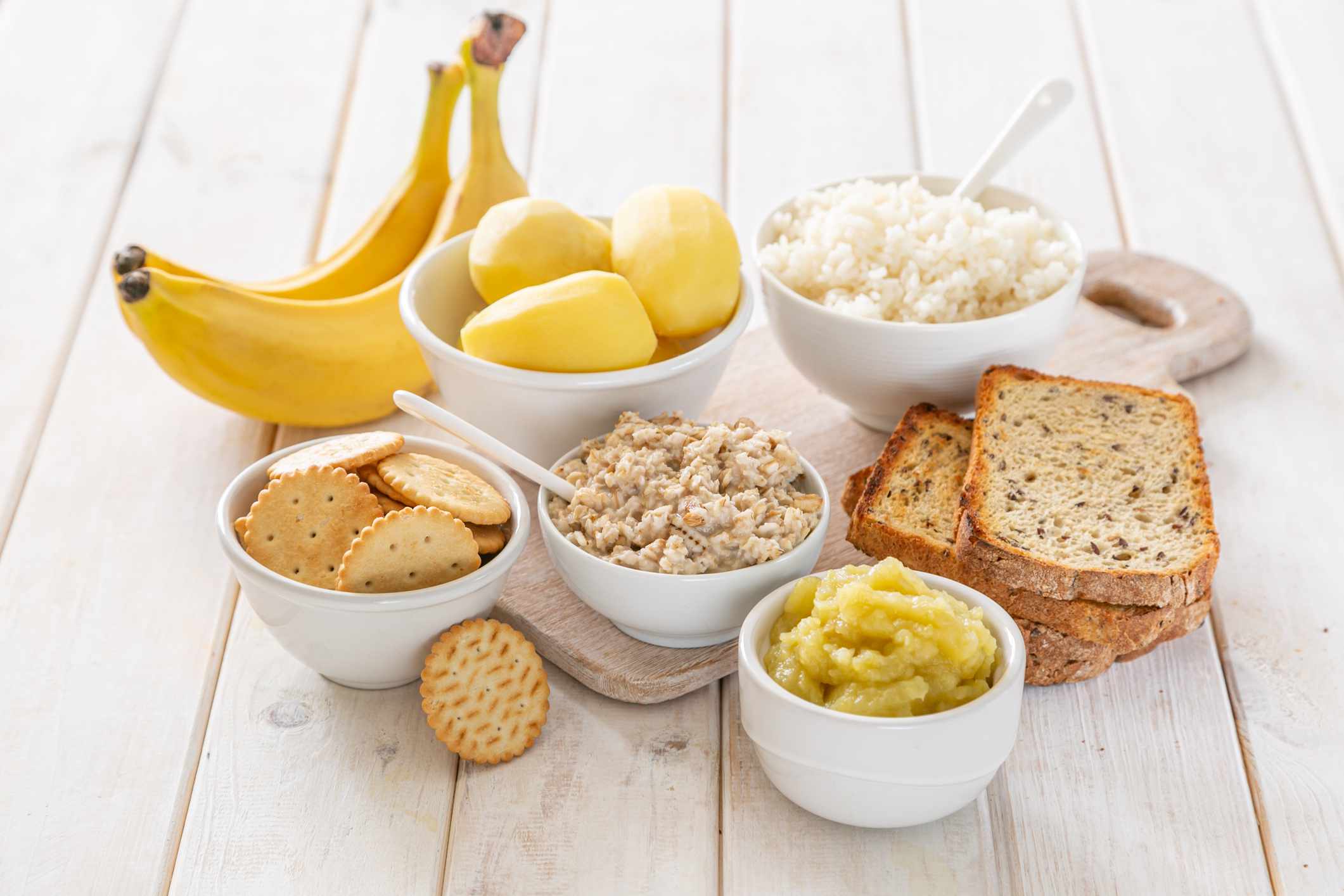Your gut houses trillions of bacteria, collectively called gut microbiota.
Numerous factors, including your diet plan, body weight, tension, and medication use, affect your gut germs. Excellent gut health, including a well balanced gut environment and healthy gut lining, is important for total health as your gut impacts your entire body along with your mood, sleep quality, and more.
If you have an unhealthy gut, it might lead to gastrointestinal problems such as diarrhea and persistent bloating, in addition to other symptoms and health conditions. There are numerous methods to care for and improve your gut health, some of which don’t have to do with your diet.
Here’s everything you need to understand about gut health and actions you can require to fix your gut.
How Do You Repair Your Gut Health?
Your gut includes a variety of microbes. While some gut microbes are understood to have anti-inflammatory impacts, others can promote inflammation and harm gut health when their numbers get too expensive.
When your gut ends up being imbalanced– called dysbiosis in the medical field– there’s a loss of beneficial bacteria and an overgrowth of microbes that have the potential to damage health and produce an inflammatory gut environment.
Several factors, a few of which run out your control, contribute to dysbiosis. For example, genes and certain infections can modify the gut microbiota. Nevertheless, factors within your control, such as diet and way of life, are amongst the most crucial contributors to gut dysbiosis.

Dysbiosis can adversely affect overall health and has been associated with a variety of medical conditions, from gastrointestinal diseases to specific cancers.
No matter the cause of dysbiosis, there are numerous ways to improve the health of your gut and motivate a balanced microbial community within your intestinal tract.
Increase Your Fiber Intake
A high-fiber diet has actually been shown to promote the health of beneficial bacteria in the gut and decrease the danger of a number of gut-related health conditions, such as colorectal cancer and diverticular illness.
Some fibrous foods, like artichokes and beans, are high in unique fibers called prebiotics. Bacteria in your big intestinal tract ferment prebiotics and release compounds called short-chain fats (SCFAs). SCFAs supply energy for the cells that line your intestinal system and are likewise associated with functions important to gut health, such as mucus production and the guideline of digestive pH.
Research shows that individuals who follow high-fiber diet plans have much healthier guts, consisting of increased microbial variety, which signifies excellent gut health, compared to people who consume low amounts of dietary fiber.
Increasing your intake of high-fiber plant foods, such as vegetables, fruits, nuts, and beans, is a fundamental part of caring for your gut and encouraging a balanced microbial community.
Cut Back on Added Sugar and Ultra-Processed Foods
A diet plan high in added sugar and ultra-processed foods can damage your gut barrier function and contribute to a pro-inflammatory gut environment.
For instance, research study shows that high added sugar and ultra-processed food consumption can result in an unfavorable microbiota composition by reducing the abundance of useful bacteria, such as Bacteroidetes species, while increasing the development of Proteobacteria in the gut, which have pro-inflammatory properties.
Surprisingly, the gut microbiota of individuals who take in high-sugar diet plans resembles the microbiota of people with health conditions such as metabolic disorders and inflammatory bowel illness (IBD). Cutting down on ultra-processed foods and foods and drinks high in added sugar and increasing your intake of healthy foods is a simple method to recover your gut.
Avoid Unnecessary Medication Use
Although some medications are required, the overuse of certain medications, consisting of antibiotics and proton pump inhibitors (PPIs), can negatively impact your gut.
Antibiotics harm your gastrointestinal health by launching chemicals that disrupt the gut microbiota, which can lead to the overgrowth of opportunistic bacteria. Chronic antibiotic usage has been connected to dysbiosis, so preventing the unneeded usage of antibiotics is advised.
PPIs can negatively affect gut health, too, especially with long-term usage. PPIs decrease stomach acid secretion, which reduces microbial diversity and induces dysbiosis.
Keep a Healthy Body Weight
Research indicates that obesity is associated with increased gut permeability, which suggests an unhealthy gut.
A healthy gut is lined with a tight barrier that controls what travels across the gut lining and into the bloodstream. When the gut lining ends up being permeable, likewise referred to as “leaking gut”, it allows product such as undigested food and toxic substances, to cross over into the bloodstream and other tissues, which adds to low-grade inflammation.
What’s more, individuals with weight problems are most likely to have gut dysbiosis, though research suggests that dysbiosis can both add to weight problems and be caused by weight problems. People with obesity seem to have less bacterial diversity compared to people considered to be at a healthy weight.
Do Not Smoke or Drink Excessively
Smoking cigarettes and drinking heavily can damage your health in a variety of ways, consisting of changing gut bacteria and contributing to dysbiosis. Cigarette smoking elevates digestive tract pH, which promotes the development of pathogenic bacteria while reducing the number of useful microorganisms. This may be part of the reason smoking cigarettes is thought about a significant danger factor for gastrointestinal conditions such as Crohn’s illness and peptic ulcers.
Persistent alcohol use is likewise connected with unfavorable changes to the gut microbiota. People with alcohol use condition have different gut microbiota compared to people who do not consume excessively. Alcoholic abuse causes dysbiosis and well as increased gut permeability, both of which can damage gut health.
For these reasons, cutting down on drinking and stopping cigarette smoking ought to be a top priority if you’re trying to recover your gut.
What Foods Improve Gut Health?
Studies show that diets high in certain foods are linked to a much healthier gut. Incorporating the following foods into your diet might help improve gut health.
Fermented Foods
Fermented foods, such as kimchi, yogurt, kefir, and sauerkraut, are foods that are produced utilizing controlled microbial development. Fermentation helps protect foods and enhance taste and texture. The fermentation procedure produces advantageous bacteria, such as lactic acid germs (LAB), which are probiotic bacteria that favorably affect human health.
According to study findings, diet plans rich in fermented foods might help secure versus gut dysbiosis, motivate the growth of helpful bacteria, and even enhance signs of certain digestion conditions, such as IBS and IBD.
Vegetables and fruits
Vegetables and fruits are rich in fiber along with anti-inflammatory nutrients and phytochemicals, such as vitamin C, flavonols, phenolic acids, and anthocyanins, that can assist encourage a healthy gut environment.
Diets high in vegetables and fruits have been shown to increase gut germs variety and the number of beneficial germs such as Bifidobacterium and Lactobacillus, which are indications of a healthy gut.
Beans and Lentils
Beans and lentils are high in fiber and supply a kind of fiber called resistant starch.
Resistant starch is fermented by gut bacteria, which results in the production of short chain fatty acids (SCFAs), which promote gut health by fueling the cells that line your digestive tract, controling mucus production, and more.
Try adding lentils, chickpeas, black beans, and kidney beans to dishes like salads, grain bowls, and soups.
Nuts and seeds
Adding more nuts and seeds into your diet plan, like walnuts, flax seeds, and pecans, can help promote gut health in a variety of methods. Research studies reveal that diets rich in nuts and seeds may assist motivate the development of advantageous bacteria in your gut.
Plus, routinely eating fiber-rich nuts and seeds may help in reducing your danger of specific gastrointestinal illness like colon cancer.
Oats
Entire grains are an excellent source of soluble fiber. Oats consist of a type of soluble fiber called beta glucan, which is fermented by bacteria in the big intestine. The fermentation procedure produces useful SCFAs, which promote digestive health and motivate a balanced gut.
Studies show that taking in oats might assist promote SCFA production and promote the growth of helpful germs like Bifidobacterium and Lactobacillus species in healthy individuals and in people with gastrointestinal conditions like celiac illness.
What Are The Symptoms of An Unhealthy Gut?
If you have an unhealthy gut, you might experience a variety of signs, such as:
Bloating
Gas
Diarrhea and irregularity
Stomach discomfort
Queasiness and throwing up
Feeling excessively complete after consuming
In addition to digestion symptoms, if you have an unhealthy gut, it can affect your whole body and lead to symptoms such as migraines, state of mind modifications, and a compromised immune system.
Additionally, because your digestion system is accountable for the food digestion and absorption of nutrients, consisting of minerals and vitamins, people with gut concerns frequently experience nutrient shortages, which can trigger symptoms such as fatigue and low mood.



